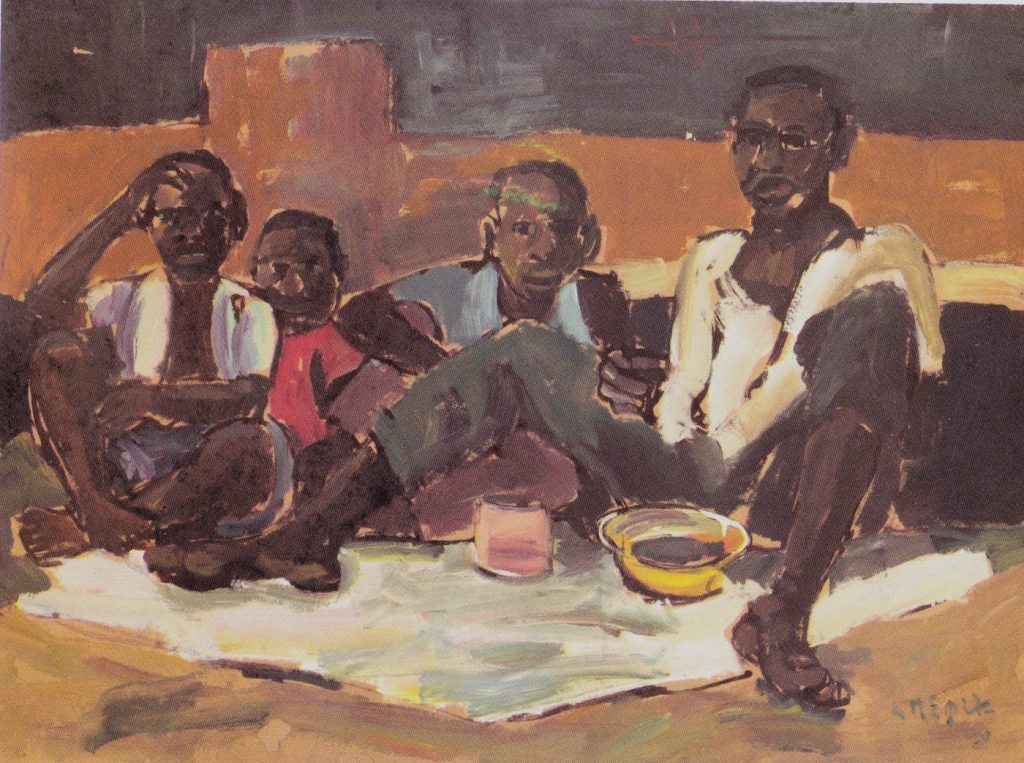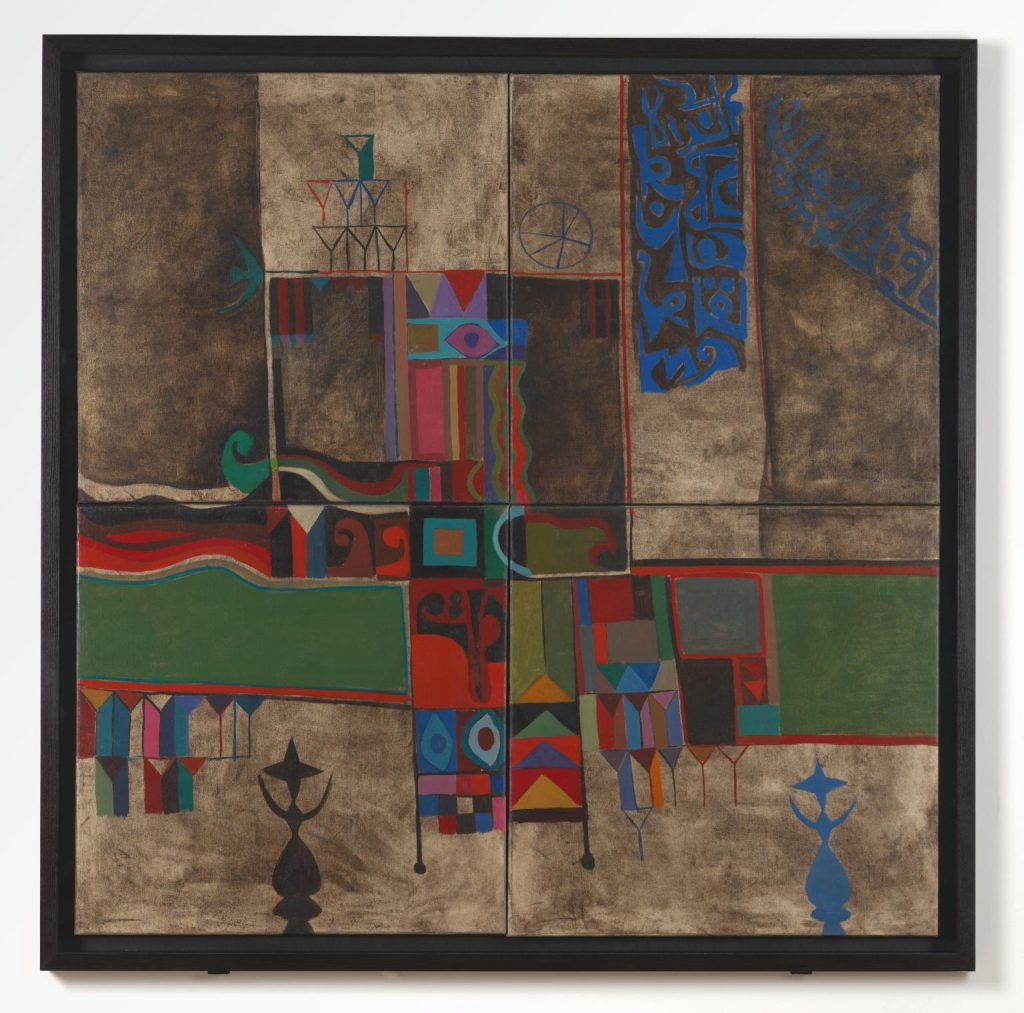Dear friends,
Greetings from the desk of Tricontinental: Institute for Social Research.
Those who do not live in war zones or in suffocated countries are forced to live life as if there is nothing strange about what is happening around us. When we read about war, it is disconnected from our lives, and many of us want to stop listening to anything about the human misery caused by weapons or by sanctions. The scholasticism of the academic and the hushed tones of the diplomat are silenced as the bomb and the bank wage war against the planet. After authorising the atom bomb that was dropped on Hiroshima (Japan) on 6 August 1945, U.S. President Harry S. Truman announced on the radio: ‘If [the Japanese] do not now accept our terms, they may expect a rain of ruin from the air, the like of which has never been seen on this earth’.
Truman justified the use of that hideous weapon by deceitfully alleging that Hiroshima was a military base. Yet he failed to mention that his bomb—known as ‘Little Boy’—killed large numbers of civilians. According to the City of Hiroshima, ‘the exact number of deaths from the atomic bombing is still unknown. Estimates place the number of dead by the end of December 1945, when the acute effects of radiation poisoning had largely subsided, at roughly 140,000’. The total population of Hiroshima at that time was 350,000, meaning that 40% of the city’s population died within five months of the blast. A ‘rain of ruin’ had already befallen them.

Luis Meque (Zimbabwe), Street Kids, 1997.
The Lancet, one of the most distinguished magazines on health and medicine, published an article by Francisco Rodríguez, Silvio Rendón, and Mark Weisbrot with a very scientific title: ‘Effects of international sanctions on age-specific mortality: a cross-national panel data analysis’. These scholars have studied the impact of sanctions mostly imposed by the United States, the European Union, and the United Nations (UN). While these measures are often called ‘international sanctions’, in reality there is nothing international about them. Most sanctions are conducted outside the realm of the UN Charter, chapter five of which insists that such measures can only be taken through a UN Security Council resolution. This is most often not done, and powerful states—mostly the United States and members of the European Union—institute illegal, unilateral sanctions against countries that exceed the logic of human decency.
According to the Global Sanctions Database, the United States, European Union, and UN have sanctioned 25% of the countries in the world. The United States by itself sanctioned 40% of these countries, sanctions that are unilateral because they do not have the assent of a UN Security Council resolution. In the 1960s, only 8% of the world’s countries were under sanctions. This inflation of sanctions demonstrates that it has become normal for the powerful North Atlantic states to wage wars without having to fire a bullet. As U.S. President Woodrow Wilson said in 1919 at the formation of the League of Nations, sanctions are ‘something more tremendous than war’.

Gaël Maski (Democratic Republic of the Congo), Jumeaux, 2023.
The cruellest formulation of Wilson’s statement was made by Madeleine Albright, then the U.S. ambassador to the UN, regarding the U.S. sanctions against Iraq in the 1990s. A distinguished team of specialists from the Centre for Economic and Social Rights went to Iraq and analysed the data to find that from 1990 to 1996, sanctions had resulted in the ‘excess deaths of over 500,000 children under the age of five. In simple terms, more Iraqi children have died as a result of sanctions than the combined toll of two atomic bombs on Japan and the recent scourge of ethnic cleansing in former Yugoslavia’. On the CBS television programme 60 Minutes, journalist Leslie Stahl asked Albright about this study, saying ‘we have heard that half a million children have died. I mean, that is more children than died in Hiroshima. And you know, is the price worth it?’. This was a sincere question. Albright had the opportunity to say many things: she could have said that she had not yet had time to study the report, or she could have shifted the blame to the policies of Saddam Hussein. Instead, she answered,
I think that it is a very hard choice, but the price, we think, the price is worth it.
In other words, it was worth killing half a million children to destabilise the Iraqi government led by Saddam Hussein. Of course, that government was not overthrown by sanctions. Instead, the people suffered for another seven years, for which there was no comparable study done on excess deaths. It took the massive illegal U.S. invasion to overthrow the Iraqi government (illegal because there was no UN Security Council resolution). To be fair to Albright, she later said, ‘I have said 5,000 times that I regret it. It was a stupid statement. I never should have made it’. But she did. And it made its mark.

Sarah Issakharian (Iran), The First Supper, 2016.
Those who inflict pain through sanctions know full well what they are doing. Albright said that her statement was ‘stupid’, but she did not say that the policy was wrong. In 2019, Associated Press’s Matt Lee asked U.S. Secretary of State Mike Pompeo about the sanctions imposed on Venezuela, to which he replied, ‘We always wish things could go faster… The circle is tightening. The humanitarian crisis is increasing by the hour… You can see the increasing pain and suffering that the Venezuelan people are suffering from’. Pompeo’s statement is emblematic and correct: the illegal sanctions create pain and suffering.
So, what does The Lancet’s new study on international sanctions show?
- From 1971 to 2021, unilateral sanctions have been the cause of death for 564,258 people per year.
- The number of people who die because of sanctions is greater than the number of battle-related casualties (106,000 deaths per year) ‘and similar to some estimates in the total death toll of wars including civilian casualties (around half a million deaths per year)’.
- The most vulnerable population groups, as you would expect, are children under five and older people. Deaths of children under five years ‘represented 51% of total deaths caused by sanctions over the 1970—2021 period’.
- Unilateral sanctions by the United States and the European Union are more deadly than UN sanctions, with ‘U.S. sanctions appear[ing] to be driving the adverse mortality effects’. This is because ‘unilateral sanctions imposed by the USA or the EU might be designed in ways that have a greater negative effect on target populations’.
- The reason why U.S. sanctions—with the EU alongside them—have such negative effects is due to the ‘widespread use of the U.S. dollar and the euro in international banking transactions and as global reserve currencies, and the extraterritorial application of sanctions, particularly by the USA’.
- The analysis shows that ‘the effects of sanctions on mortality generally increase over time, with longer-lived sanctions episodes resulting in higher tolls on lives’.
Based on these findings, the study concludes that ‘from a rights-based perspective, evidence that sanctions lead to losses in lives should be sufficient reason to advocate for the suspension of their use’.

Dia al-Azzawi (Iraq), The Arab League Hotel, 1971.
In March 2025, we published a dossier called Imperialist War and Feminist Resistance in the Global South, primarily looking at the case of Venezuela, and which described the impact of sanctions and how a society under attack is held together by the work of women. They know what the ‘rain of ruin’ feels like and they are fighting to strengthen their societies against it. As we showed in our FACTS analysis, sanctions against Venezuela resulted in a loss of 213% of its Gross Domestic Product between January 2017 and December 2024, which amounts to a total estimated loss of $226 billion or $77 million per day.
In 1995, during the sanctions against Iraq and before the United States invaded that country illegally in 2003, Saadi Youssef (1934—2021) wrote a miraculous poem called ‘America, America’. Here is the last stanza:
We are not hostages, America,
and your soldiers are not God’s soldiers…
We are the poor ones, ours is the earth of the drowned gods,
the gods of bulls,
the gods of fires,
the gods of sorrows that intertwine clay and blood in a song…
We are the poor, ours is the god of the poor,
who emerges out of farmers’ ribs,
hungry
and bright,
and raises heads up high…America, we are the dead.
Let your soldiers come.
Whoever kills a man, let him resurrect him.
We are the drowned ones, dear lady.
We are the drowned.
Let the water come.
Warmly,
Vijay

